Cats are creatures of habit and are naturally inclined to choose specific spots for urination. But your cat may not be following its usual routine due to some underlying causes. Understanding and analyzing your cat’s behavior can help to deal with the problem.
Now, if you see your cat peeing on baseboards, it can be because of marking territory, medical issues, or litter box problems. Besides the bad odor, the acidic elements of cat urine can damage the baseboards and cause erosion and discoloration. Use enzymatic cleaners to clean the area and consult with a veterinarian.
By taking some measures like positive reinforcement or establishing a routine, you can stop your cat from peeing on baseboards and other spaces. Knowing Muezza’s behavior and pattern has made this easier for me, and I’ll help you with my findings, too.
Why Do Cats Pee on Baseboards?
Sometimes, cats can pee in other places despite having a designated litter box. My Persian cross, Muezza, has also had this problem in the past. But with effective steps, I’ve solved the issue, and so can you.
Here are some of the root causes behind this problem that I’ve noted –
Marking Territory
Cats are territorial animals, and one way they communicate and set boundaries is by urine markings. Particularly if there are other cats in the home or due to recent changes to the surroundings, your pet may try to mark its territory by peeing on baseboards.
Medical Issues
A cat’s incorrect urinating can also be caused by medical conditions. I make sure to rule out any underlying health issues that might be causing Muezza pain or discomfort and make her avoid the litter box.
Increased urgency and frequency of urine can be a symptom of diseases, including bladder stones, urinary tract infections, or feline lower urinary tract disease (FLUTD). This leads the cat to look for alternative places to comfort itself.
Litter Box Problems
Another reason a cat might not want to use a litter box is problems with the box or the litter itself.
Cats are picky about their bathroom habits; even small adjustments can cause them to avoid using the litter box. Common litter box issues include:
● Dirty or Inadequate Litter Box Maintenance
Cats prefer clean litter boxes and may avoid using them if they are soiled or not cleaned regularly.
● Inappropriate Litter Type
Cats have preferences for litter texture, scent, and depth. If the litter doesn’t meet their preferences, it may discourage them from using the litter box.
● Location and Accessibility
Cats prefer a quiet and private area for their litter boxes. Placing the litter box in a high-traffic or noisy area can make them feel vulnerable and uncomfortable.
Understanding these potential root causes has helped me to take the appropriate steps to address the underlying issues for Muezza.
What Are the Common Peeing Patterns of Cats With Issues?
Addressing the issue of a cat peeing on baseboards requires careful observation and identification of any noticeable signs and patterns. I suggest paying attention to your cat’s behavior for crucial insights into the reasons behind this bad habit.
Here are three key signs I noticed in Muezza:
Frequent but Irregular Urination
Your cat urinating more frequently than usual is one of the first indications of a potential issue.
Multiple trips to the bathroom or frequent urine in various locations around the house may be signs of a health concern like a kidney or urinary tract infection. Small volumes of urination at a time might also be an indication of discomfort.
Peeing Near Baseboards
The location of your cat’s urination can also provide important clues. If you find urine spots near baseboards, walls, or other vertical surfaces, it may indicate territorial marking behavior.
Cats use their urine to leave scent markings, and vertical surfaces are preferred locations for this form of communication.
Remember that urine spraying, which is different from regular urination, is usually seen as a behavior related to territorial marking.
Behavioral Changes
If your cat becomes more aggressive, anxious, or withdrawn, it might be a response to changes in the home environment or stress related to a medical condition.
Cats may also become more vocal or display signs of distress if they are experiencing discomfort or pain.
How to Stop Cats from Peeing on Baseboards?
Now that you understand the causes and patterns of the problem, it’s time to know how to stop your pet cat from peeing on baseboards.
For my Muezza, there were no underlying medical issues but rather behavioral changes due to several reasons. Though I had visited the vet first, he didn’t find any medical issues.
After that, I visited an animal behaviorist to determine the reasons behind Muezza’s inappropriate urination. These professionals specialize in understanding feline behavior and can assess the situation to identify potential triggers and solutions.
The trainer considered factors such as changes in the home environment, stressors, or interactions with other pets. He treated my Muezza by advising the following measures.
- Environmental Enrichment: Recommending interactive games, scratching posts, or toys to keep Muezza cognitively and physically engaged.
- Desensitization and Counterconditioning: Using reward-based training and gradual exposure to help her develop good associations with the litter box.
By the way, that doesn’t mean your cat should have the same issues. So, you should consider the following measures to resolve the peeing issues of your cat on baseboards –
Treat the Medical Conditions
Making sure your cat’s health is in order is the first step in dealing with incorrect urinating. Visit the veterinarian for a thorough examination.
The vet will examine your cat’s overall health and check for any underlying medical conditions. To address issues like urinary tract infections, he may perform necessary tests, such as urinalysis.
Address the Litter Box Problems
A cat’s litter box preferences are essential to ensure they consistently use it. Evaluate the litter box setup to ensure it meets your cat’s needs.
Keep the litter box clean by scooping it at least once a day and changing the litter regularly. I experimented with different litter textures and scents to find the one Muezza prefers.
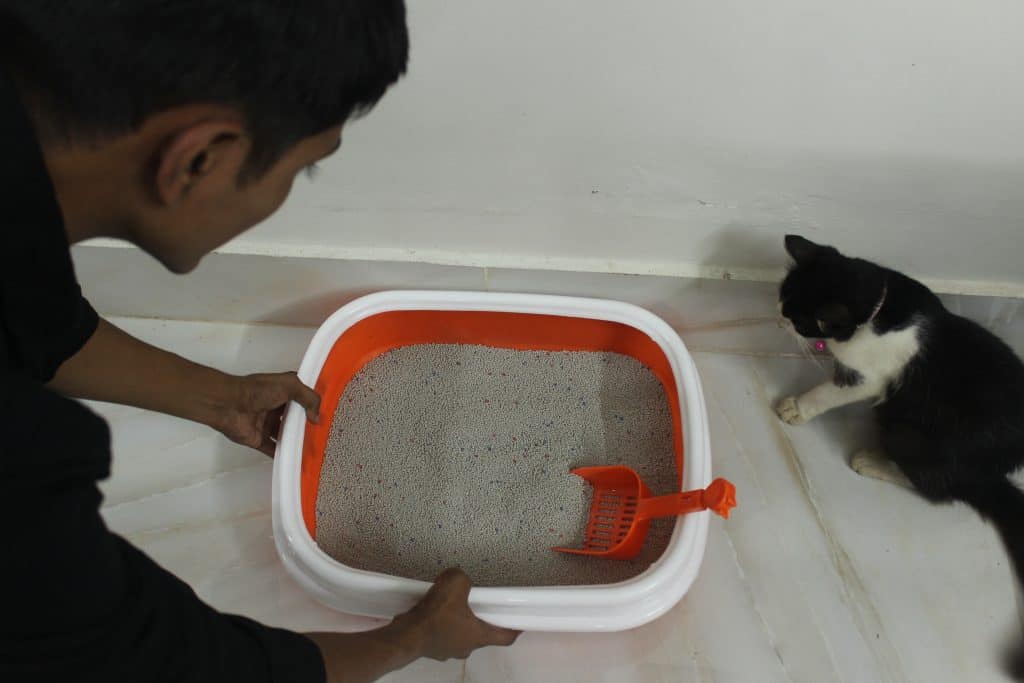
Place the litter box in a quiet, private, and easily accessible area away from busy spots or noisy appliances.
Prevent the Stress and Anxiety
Cats are sensitive creatures and can be easily stressed by changes in their environment or routine. They thrive on consistency, so try to stick to a predictable daily routine. I keep a designated area at home where Muezza can retreat and feel secure.
You can use pheromone sprays like Feliway Optimum to help reduce stress and create a calming environment.
Reinforce Positive Behaviors
Positive reinforcement can play a significant role in encouraging desired behaviors. Give your cat praise, food, or affection when it uses the litter box correctly.
This positive association can help reinforce the litter box as the preferred spot for urination.
Tips for Cleaning and Maintaining a Safe Space
Besides addressing the underlying causes, you also need effective cleaning and prevention strategies. For Muezza, I make sure to –
Clean the Affected Area Fast
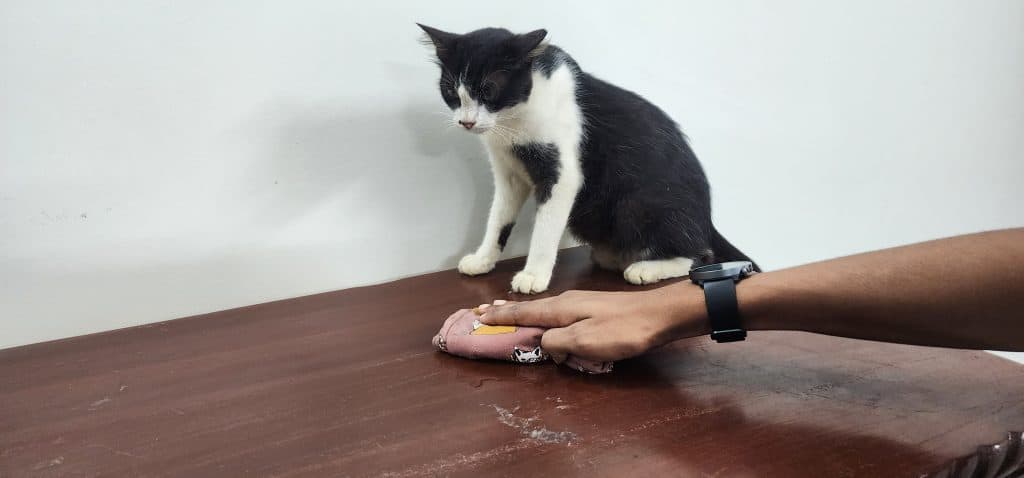
It’s important to clean the affected areas immediately if your cat urinates there or in other improper places.
Use paper towels to blot up as much urine as possible without spreading it further. I’d advise avoiding using ammonia-based cleaners since they may smell like cat urine and could draw your cat back to the same location.
Instead, use mild dish soap or a mixture of water and vinegar to clean the area thoroughly. Rinse thoroughly with clean water afterward.
Use Enzymatic Cleaners
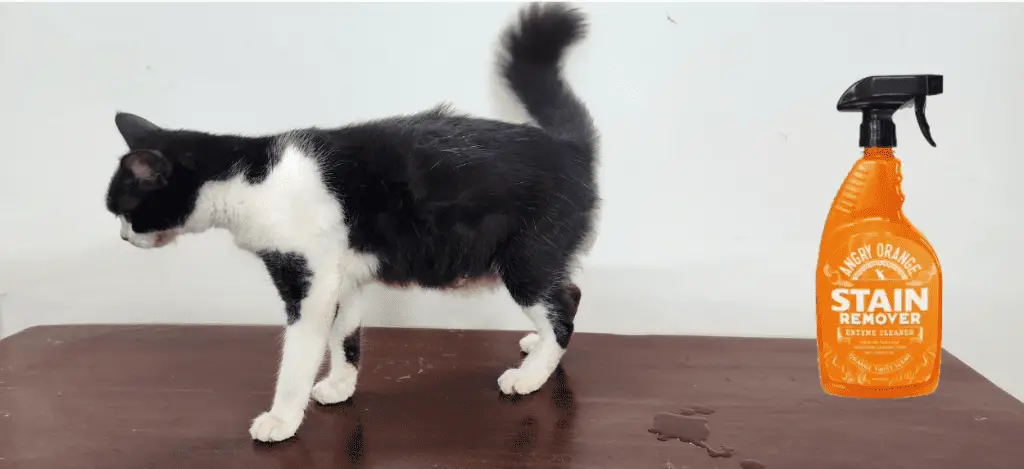
Use enzymatic cleaners designed to break down the proteins in cat pee if you want to get rid of the smell effectively.
These cleaners work by breaking down the germs and odor-causing molecules, ensuring that the scent is removed completely. Follow the manufacturer’s instructions carefully when using enzymatic cleaners.
Prevent Access to Spaces
To protect baseboards and walls from further urination, you can stop your cat from accessing them. I use baby gates or other barriers for Muezza.
Cats dislike the texture of aluminum foil and plastic carpet runners, making them effective deterrents. You can place them on the baseboards or near the problem areas.
I applied double-sided tape to the baseboards to discourage Muezza from approaching those spots due to the sticky texture.
FAQs
Since the issue is unknown to many, people often ask questions regarding cats peeing on baseboards. Here, I have answered some common questions based on my experience with Muezza –
Q. Does the cat pee smell go away?
Yes, but you may need to use an enzymatic cleaner to ensure a fast process.
Q. Can cat urine be toxic to health?
If the litter boxes are open and soiled with cat pee, it can generate a mild health concern, such as bacterial growth. You can even develop allergies or respiratory issues if this goes on for a long time.
Q. Can medications refrain cats from peeing on baseboards?
In some cases, veterinarians may prescribe anti-anxiety or other medications to address underlying behavioral issues. Consult a vet before considering medication.
Final Thoughts
If you have pet cats at home, you’re bound to deal with some responsibilities. To solve issues like your cat peeing on baseboards, it’s important to be patient and observant.
Look out for any patterns in your cat’s behavioral changes and consult with a veterinarian if needed. Ensure that your cat isn’t in discomfort or trouble with any medical issues. You can use enzymatic cleaners for effective pee cleaning and pheromone sprays to soothe your cat!

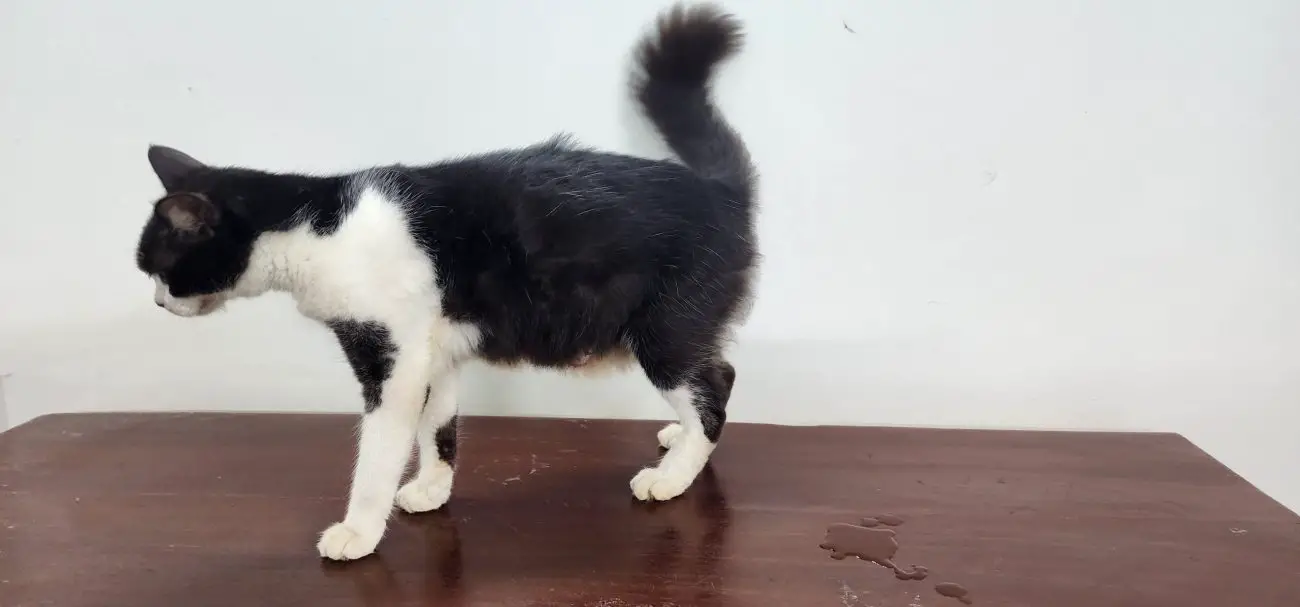
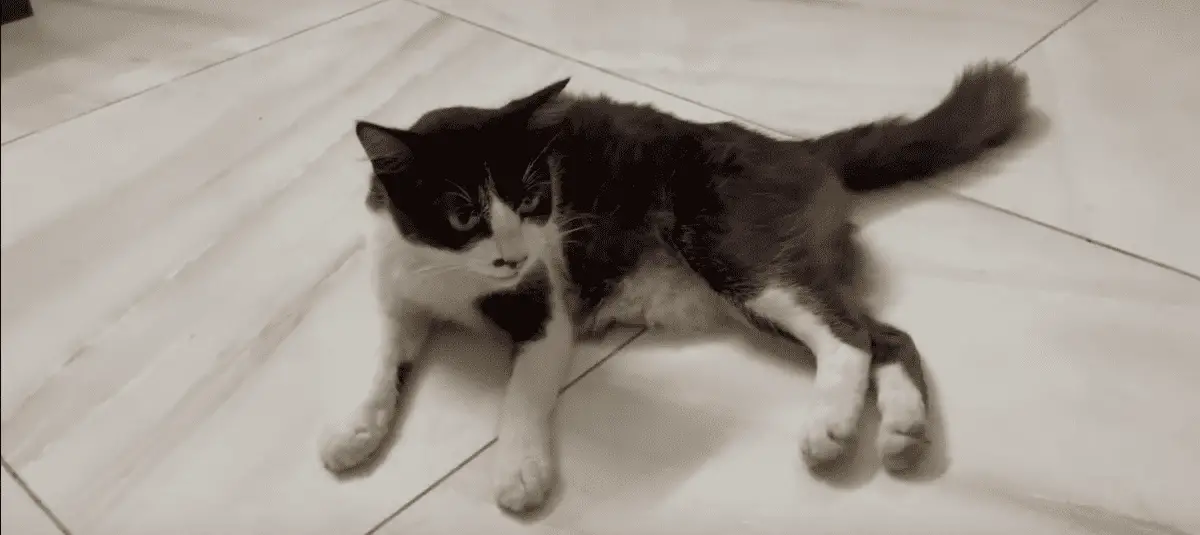
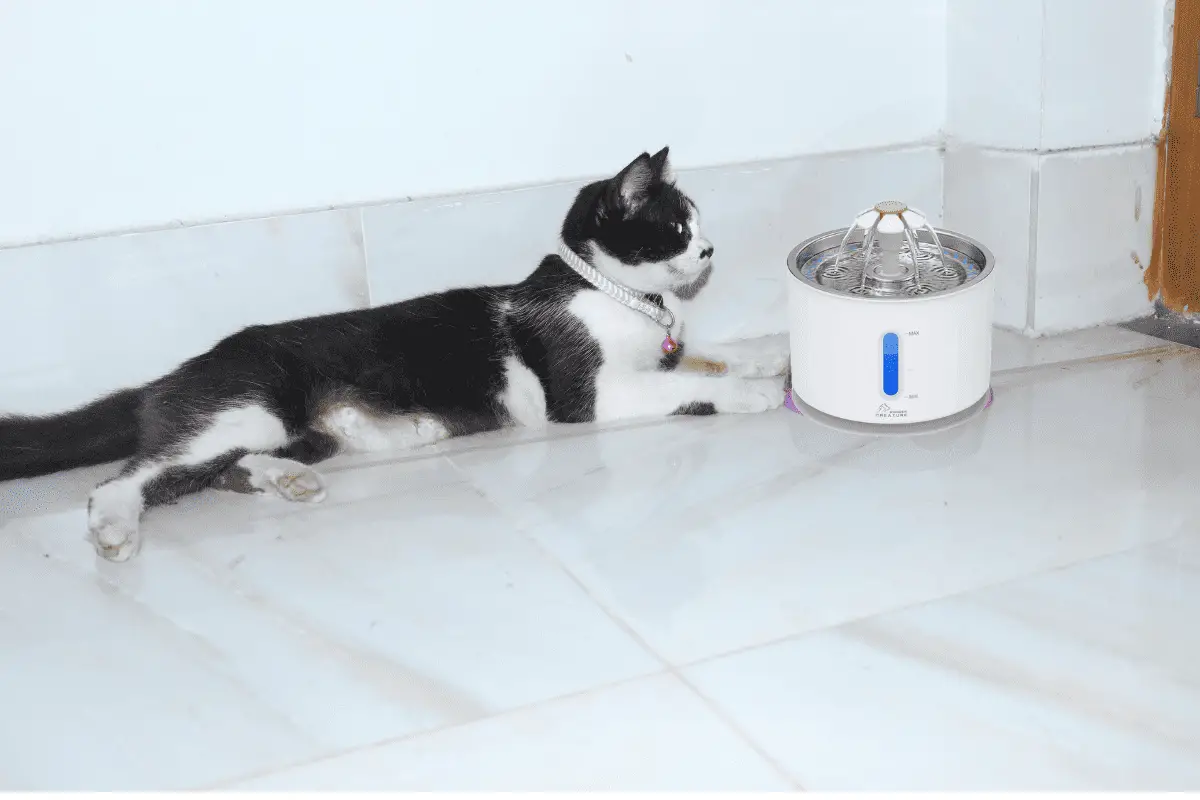
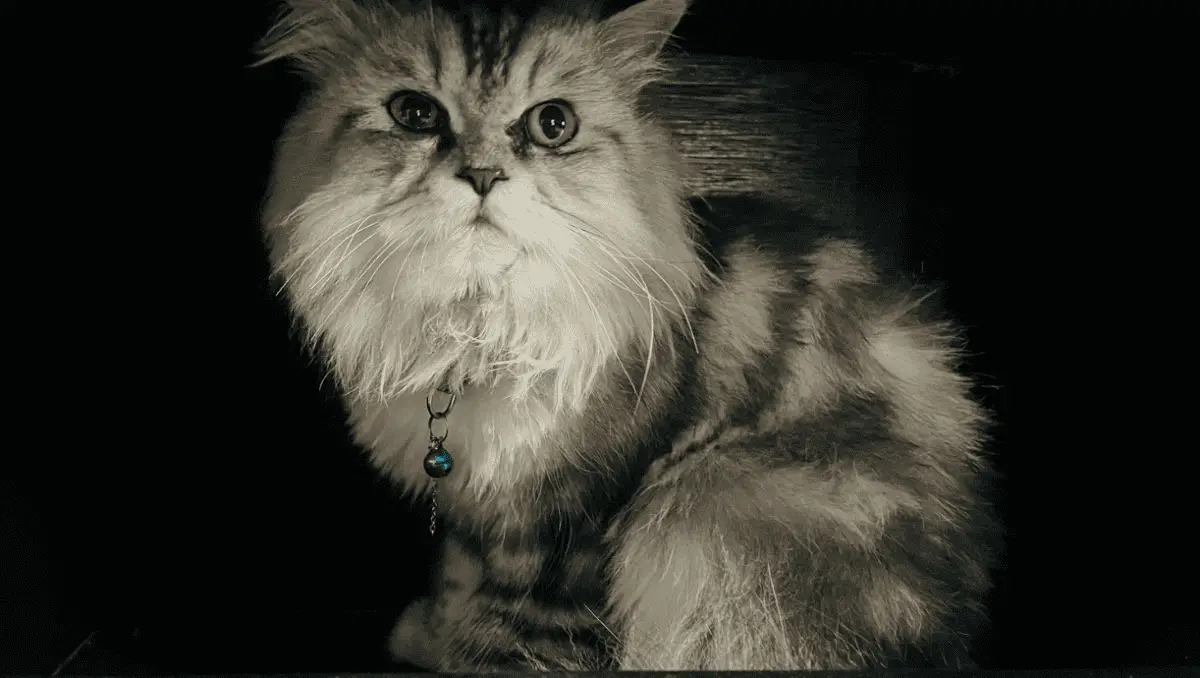

Leave a Reply